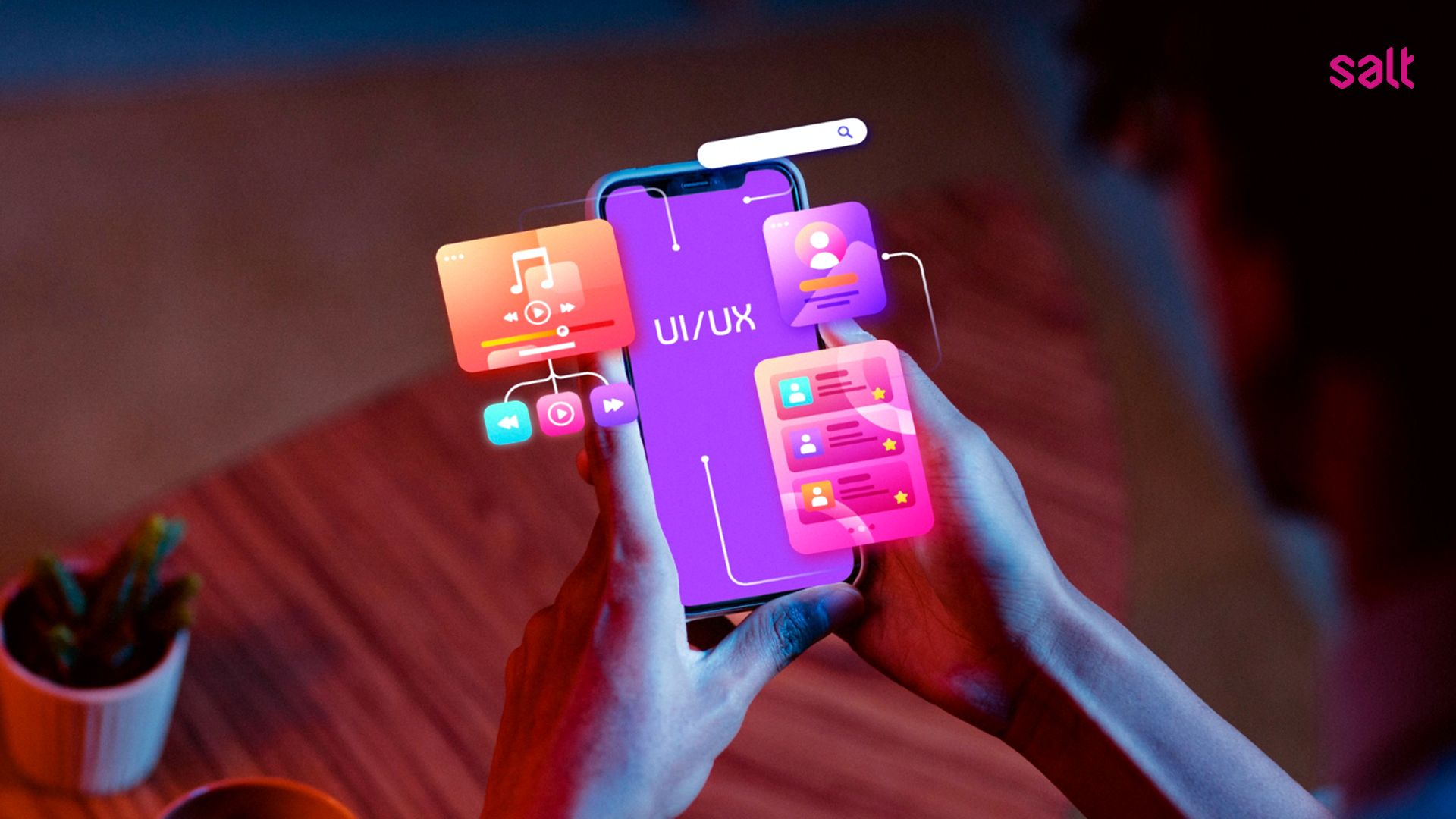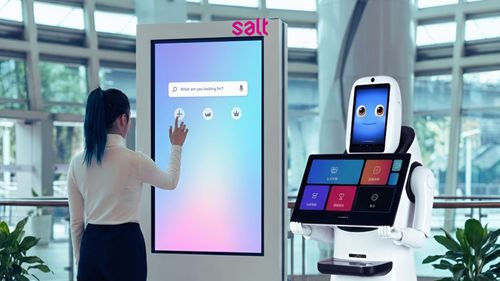Mobile app technology has become an integral part of our daily lives. This is because mobile app development has become a major focus in the technology realm.
As a result, advancements in mobile apps can facilitate communication, simplify access to information, and change how we interact with the world around us. On the other hand, developers can create innovative solutions that bring convenience and comfort to users' fingertips through mobile app development.
Let's delve deeper into the phenomenon and the crucial role of Mobile App Development in determining the future direction of technology!
What is Mobile App Development?
By definition, Mobile App Development is a technical discipline that covers designing, developing, testing, and distributing software applications to be run on mobile devices such as smartphones and tablets.
So, who is a Mobile Developer? A Mobile App Developer is a professional responsible for the mobile application development process. In other words, they are the hands behind the formation of mobile app technology, software, or systems.
Examining why mobile app development is needed will not be far from meeting user's needs for digital platforms.
Mobile app development aims to provide mobile software solutions that meet user's needs and simplify their daily lives, providing easy and fast access to information, services, or specific features.
In addition, it also allows closer interaction between users and devices, and enhances their productivity and comfort.
Also Read: Website Technology: Definition, History, and Latest Trends
Stages in Mobile App Development
The mobile application development process goes through quite complex stages, involving various aspects such as a deep understanding of the platform, user needs & desires for features, and optimal user experience.
If we break it down in general, there are 6 stages of mobile app development, namely:
1. Planning and Conceptualization of the Application
The initial stage involves identifying the application's objectives, user needs, and required features. This includes gathering requirements, market analysis, and creating a development strategy.
2. User Interface (UI) and User Experience (UX) Design
This stage is designing the visual layout and intuitive user interaction, which is attractive and efficient. Both UI and UX design focus on satisfying user experience and is easy to understand.
3. Mobile Application Development
This stage is the process of implementing concepts & designs into lines of code and commands. The development will use various programming languages such as Swift or Objective-C for iOS, Java or Kotlin for Android, or cross-platform languages like JavaScript for hybrid application development.
4. Testing and Debugging
This stage includes various tests, such as functional, device compatibility, and performance tests. Testing and debugging are crucial because they ensure the application's quality, stability, and performance.
5. Launch and Distribution
This stage distributes the application to users through digital distribution service platforms such as the App Store and Google Play Store. At this stage, marketing and product promotion strategies will be beneficial in increasing visibility and attracting new users.
6. Maintenance and Updates
This process involves routine maintenance, troubleshooting, and regular updates to fix bugs, improve application performance, and add new features based on user feedback and the latest technological developments.
Also Read: Understanding Digital Transformation in Indonesia and Its Key Aspects
Types of Mobile App Development
When discussing types of mobile app development, we need to know the various approaches and technologies used.
Here's an explanation of each approach in the mobile application development process:
a. Native Mobile Development
Native Mobile Development is an approach in which applications are developed specifically for one platform, such as iOS or Android.
For iOS, developers usually use programming languages like Swift or Objective-C. Meanwhile, the programming languages often used for Android are Java or Kotlin.
Native applications can offer high performance and full access to device features, but require separate development processes for each platform.
b. Hybrid Development
Hybrid Development is the development process that combines web technology with specific frameworks such as Ionic or React Native.
Hybrid application development is written using standard web programming languages like HTML, CSS, and JavaScript, then wrapped in a framework that allows the application to run on various platforms.
This approach allows for faster development processes and lower costs, but sometimes can result in a less smooth user experience than native applications.
c. HTML5 Development
In HTML5 Development, the application development process uses standard web technologies with a higher version like HTML5, CSS3, and JavaScript to build applications that can be accessed through web browsers on various devices.
Mobile applications developed with HTML5 can be accessed through a URL like a website and do not require users to download or install.
However, access to hardware features is limited, and its performance may not be as optimal as native applications.
d. Cross-platform Development
Then there is Cross-platform Development, which is the development of applications using frameworks like Xamarin or Flutter that can run on various platforms using the same code.
This allows for efficient and consistent development processes across all platforms because it avoids rewriting code for each platform separately.
e. Progressive Web Apps (PWA)
Progressive Web Apps are web applications that offer an experience similar to native applications and can be accessed through a web browser.
These applications can be installed directly on the user's device and provide features such as offline access or push notifications.
PWAs utilize modern technologies like service workers and manifest to provide a better experience for users.
In addition to the 5 types of mobile app development methods above, SALT Indonesia also uses several other approaches tailored to the latest technological developments and unique client needs.
Also Read: API Integration: A Business Innovation Strategy through API Technology
Differences Between Web vs Mobile App Development
To understand the differences in concepts between Web Development and Mobile App Development, let's take a look at the following table:
Criteria | Web Development | Mobile Development |
Target Platform | Runs in web browsers | Specifically developed for mobile platforms |
Accessibility | Can be accessed from various devices with an internet connection | Can be accessed from mobile devices, including in offline conditions |
User Interaction | More limited compared to native applications | Allows closer interaction and specific device features |
App Performance | Sometimes, it can be slower than native applications | Usually has better and more responsive performance |
Distribution & Updates | Easily distributed via URL and requires minor updates | Requires downloads and updates through app stores |
Specific Device Features | Limited access to device features like camera or GPS | Full access to device features, allowing deeper integration |
Development Cost | Lower development costs | Higher development costs due to separate development for each platform |
Also Read: Presenting BCA Life's Masterpiece: "NOW by BCA Life" Super App
Latest Mobile App Development Technology Trends
To see what the future of mobile app development will look like in the coming years, we need to pay attention to the latest trends in technology.
Some examples of current mobile app development technology trends are as follows:
- Use of Artificial Intelligence (AI) and Machine Learning (ML)
- Development of Internet of Things (IoT) based applications
- Cloud-based applications with greater flexibility and scale
- Integration of Blockchain Technology for data security and transparency
- Mobile App Security as part of cyber security
- User-centric application development
- Adoption of Augmented Reality (AR) and Virtual Reality (VR) technologies
In line with these trends, SALT Indonesia continues to innovate by implementing various technologies into its client projects. Visit our Case Studies page to learn how SALT can provide innovative solutions for its clients.
Questions about Mobile App Development
a. What is Mobile App Development?
Mobile Application Development is the process of creating software applications specifically designed for mobile devices such as smartphones and tablets.
b. What are the Best Programming Languages for Mobile App Development?
Several programming languages and frameworks can be used to develop mobile applications, depending on what kind of application you want to build. Some are programming languages like Swift or Objective-C for iOS, and Java or Kotlin for Android.
c. How to Choose the Best Mobile App Development Company?
In choosing the best mobile app developer company for your project, there are several criteria to consider:
- Having a proven reputation & experience through portfolios and client testimonials
- Having specific methods or approaches in app development
- Having technical expertise that meets Mobile App Development requirements
- Transparency & collaboration in the app development process
- Being sensitive to user behavior trends & experiences, as well as the latest technology
- Providing support services such as consulting, app testing, maintenance, and others
Also Read: Strategic IT Consulting: Unleashing the Power of Technology with SALT
Key Takeaways
We must realize that opportunities and challenges in mobile app development will continue to grow along with technological advancements and user preferences.
Therefore, by understanding current trends, honing the necessary skills, and continuously committing to excellence standards, businesses can lead to success in this increasingly competitive world.
The world of mobile applications awaits innovations you can bring to business, and SALT Indonesia can be the best partner for you to realize that.
Be part of the Mobile App Development revolution and discover how we can help your business through our Technology Development services by clicking the banner below!





